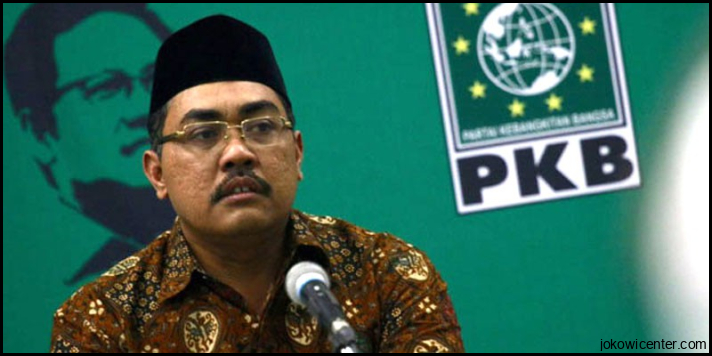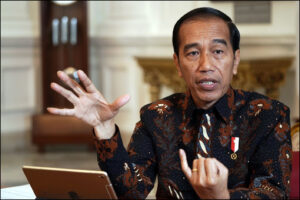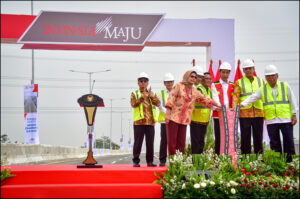Indonesia recently witnessed a heated debate in the parliament regarding the issue of “interpellation” raised by President Joko Widodo, commonly known as Jokowi. In his speech, the President emphasized the need to avoid blowing trivial matters out of proportion and diverting attention from more significant national issues. His statement resonated with the Indonesian public and prompted a thoughtful discussion on the role of interpellation and its impact on the country’s political landscape.
Jokowi’s Perspective on Interpellation
In his address to lawmakers, Jokowi highlighted the importance of focusing on substantial challenges faced by the nation rather than engaging in unnecessary political grandstanding. He cautioned against magnifying minor issues that can potentially distract from pressing matters that require immediate attention. This stance reflects Jokowi’s commitment to prioritizing national development over political disputes while striving for a forward-thinking and progressive Indonesia.
Recontextualizing Interpellation
Interpellation is a tool used by Indonesian politicians to question cabinet members or government officials about specific policies or actions taken by their respective ministries. It provides an opportunity for thorough scrutiny and accountability, ensuring transparency within the executive branch. However, there have been instances where interpellation has been misused for personal or partisan purposes rather than serving its intended purpose of fostering constructive dialogue.
The Danger of Political Distractions
Jokowi’s call to avoid blowing small pebbles out of proportion resonates with many Indonesians who are concerned about potential distractions that can hinder progress. The nation faces considerable challenges including economic recovery post-pandemic, infrastructure development, and social inequality. Focusing on trivial matters through interpellation diverts attention from urgent issues that require immediate attention and effective solutions.
Why Substance Matters More Than Form
Jokowi’s emphasis on substance over form is a significant departure from the traditional political landscape, where sensationalism often dominates public discourse. The President encourages politicians to focus on concrete policies and actions that will have a tangible impact on the lives of citizens rather than engaging in theatrics for mere political gain.
Shifting the Paradigm of Political Discourse
By discouraging the exaggeration of minor issues through interpellation, Jokowi aims to steer political discourse towards meaningful conversations that address Indonesia’s pressing challenges. This approach encourages lawmakers to propose and discuss substantive policies that can drive economic growth, improve welfare systems, and promote sustainable development across the country.
Promoting Collaboration over Contentiousness
Jokowi’s vision for constructive dialogue urges politicians to put aside their differences and work collaboratively towards common goals. He believes that by embracing unity rather than engaging in divisive debates, policymakers can better serve the Indonesian people and make substantial progress in various sectors.
The Importance of Prioritization in National Development
Jokowi’s call to avoid magnifying insignificant issues aligns with his commitment to prioritizing national development projects. As a leader focused on infrastructure development, poverty eradication, and improving Indonesia’s global competitiveness, he realizes the importance of efficiently allocating resources toward vital initiatives. By minimizing distractions caused by interpellation focused on trivial issues, Jokowi aims to ensure that the nation’s limited resources are channeled towards projects that directly benefit the Indonesian people.
Achieving Long-term Sustainable Development
Indonesia’s rapid growth and emerging economy require a strategic and sustainable approach to development. Jokowi’s vision involves investing in human capital, improving education and healthcare systems, and promoting environmental initiatives. By discouraging unnecessary interpellation surrounding minor issues, he aims to create a conducive environment for long-term planning and execution of these crucial developmental goals.
Effective Governance through Clear Priorities
Jokowi’s insistence on prioritization is rooted in his belief that effective governance necessitates clear direction. By avoiding distractions caused by interpellation, the government can focus on delivering tangible outcomes that have a lasting positive impact on the lives of Indonesians. This approach ensures efficient utilization of resources while fostering a conducive atmosphere for sustainable development across various sectors.
The Way Forward: A Discourse Based on Substance
Jokowi’s address serves as an important reminder for Indonesian politicians to channel their efforts towards substantive policies rather than getting caught up in political theatrics. By redefining the discourse surrounding interpellation, Jokowi aims to foster constructive debates centered around national development priorities while minimizing distractions caused by trivial matters.
Encouraging Public Participation in National Development
Jokowi’s call also extends beyond politicians and reaches out to all Indonesians who play an essential role in shaping the country’s future. His emphasis on substance over form encourages citizens to engage in meaningful discussions, contribute ideas, and hold policymakers accountable for their actions. This participatory approach ensures that public interests are adequately represented while working towards a brighter future for Indonesia.
A United Indonesia: Progress through Collaboration
Jokowi’s vision embraces a united Indonesia, where collaboration and common goals prevail over partisan differences. By fostering an environment that encourages substantive dialogue and minimizes distractions caused by interpellation on trivial matters, he envisions a country that can make significant progress in various sectors through effective governance and inclusive development.
President Jokowi’s reminder to avoid magnifying small pebbles amidst pressing challenges not only sets the tone for political discussions but also highlights the imperative need to prioritize issues of national importance. By focusing on substance rather than form, Indonesian politicians can collectively work towards addressing crucial national concerns and ensuring sustainable development for the nation as a whole.






